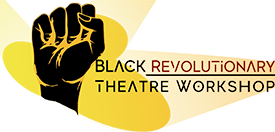Patrisse Cullors is a queer performance artist, educator, activist and co-founder of the Black Lives Matter movement.
Cullors was born and raised in Los Angeles California, one of 9 children, and came out as queer at the age of 16. She is a Fullbright Scholar, Alumna of UCLA, winner of the 2007 Mario Savio Young Activist of the Year Award, Glamour Magazine 2016 Woman of the Year, holds an honorary Doctorate from Clarkson University, and is currently the founder and executive director of Dignity and Power Now. Her performance work includes STAINED: An Intimate Portrayal of State Violence.
Patrisse is credited with creating the #BlackLivesMatter hashtag, after reading her friend and co-founder Alicia Garza’s Facebook Post: “Black people. I love you. I love us. Our lives matter, Black Lives Matter.”
One impressive thing about Patrisse Cullors is her willingness to publicly share her evolution as an activist. For example, in 2015 Cullors and her co-founders Opal Tometi and Alicia Garza were featured in a Cosmopolitan magazine interview and photo shoot. A friend and fellow activist contacted Cullors, pointing out the clothes in which the three had been styled-pieces from Banana Republic, whose abusive labor policies are common in the fast-fashion industry. Cullors took the critique to heart and posted a Facebook status noting that the trio had been complicit in an oppressive system, thanking her friend for calling her out, and re-affirming her commitment to solidarity with oppressed peoples internationally.
She also wrote a piece in Esquire Magazine about her changing views on marriage. While she had long been a staunch supporter of marriage equality, Cullors resented the idea that the institution of marriage was a magic fix to oppressed community’s issues and didn’t see marriage in her future. However, when she met her now-partner Janaya Khan (a transgender immigrant and co-founder of Black Lives Matter Canada), Patrisse’s thoughts changed: “I also soon realized that part of our destiny was not just a union through a spiritual bond but through a legal one as well. Together, we could challenge marriage as a white, heteronormative, religious construct. We could build a new narrative steeped in the intersections of black love…I knew marriage-in all its messy complexity-was right.”
She and Khan wed in June 2016.

